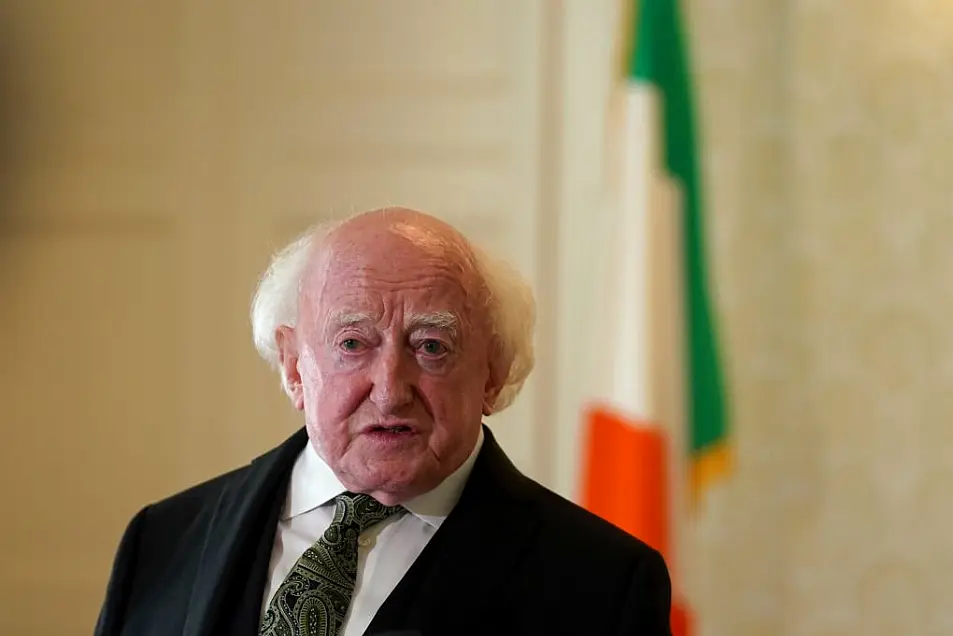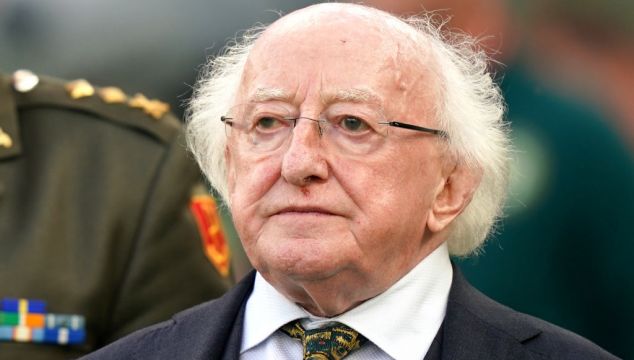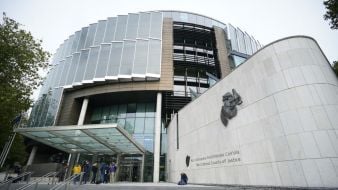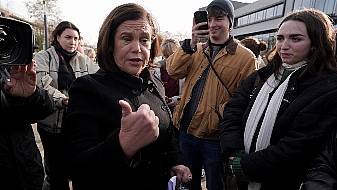President Michael D Higgins' comments on the Government's security forum did not "explicitly" breach any constitutional rules, however, he fell short of upholding his obligations, according to a professor of constitutional law and theory.
In an interview with the Business Post, the President said the country is "playing with fire" during a dangerous period of "drift" in foreign policy - and should avoid "burying itself in other people's agendas".
Tánaiste and Minister for Foreign Affairs Micheál Martin responded by defending the Consultative Forum on International Security Policy, and insisting the debates were necessary.
Taoiseach Leo Varadkar refused to comment on the interview with Mr Higgins.
DCU Associate Professor in constitutional law and theory Tom Hickey told BreakingNews.ie: "It's not a simple question constitutionally speaking. I would say the President has not breached an explicit constitutional rule... but I would say also that flowing from those rules there are conventions. These are important conventions that are there for very good constitutional reasons, and I would say he has fallen short of upholding his obligations under those constitutional conventions."
Prof Hickey said the presidency has important constitutional functions, and should always be "above the political fray".
"They might be mundane and ceremonial, but they are extremely important. The President appoints the taoiseach, the ministers, the judges. He accepts resignations of ministers, summons the Dáil, dissolves the Dáil. The President has the capacity to refuse to dissolve the Dáil in certain circumstances.
"The President refers bills to the Supreme Court where he is of the view it might be inconsistent with the Constitution. With many the President is obliged to carry them out on the advice of the Government, they are ceremonial, but there is a need for somebody in the constitutional system to be there to carry out those functions.
"There's a reason there is this convention that the President is very careful in what he/she says, the reason is that the person who carries out those functions must be perceived by everybody to be beyond and above the political fray."

He added: "The President can refuse to dissolve the Dáil where the request has been made by a taoiseach who has lost a majority. That may not crop up often, but it's very significant. It has been a convention that presidents do not become entangled in partisan politics."
Prof Hickey cited article 13.7 of the Constitution as the most relevant in questions over whether Mr Higgins' comments overstepped the mark.
"That [Article 13.7] says the President may communicate with the Houses of the Oireachtas by message or address on any matter of national or public importance. The President may also address a message to the nation, subsection 3 says any such message or address must have received the Government's approval.
"That pertains to something specific, where the President 'communicates with the Houses of the Oireachtas by message or address' or addressees a 'message to the nation'.
"He wasn't addressing the Oireachtas here or in the formal sense envisioned by that provision addressing the nation either.
"He has not broken a clear and explicit provision of the Constitution, but there is a convention that has developed over the decades.
"Presidents should not get involved in highly contested moral political questions, particularly where the Government is taking a position. That's precisely what President Michael D Higgins has done here."
Prof Hickey said Mr Higgins is a "very experienced political and constitutional actor".

"He is well versed on the constitutional position, admittedly it is vague and there is scope to disagreement on what it requires, but he knows what he's doing and was conscious of it.
"He has established his position and clear convictions on this over a long career. He's very much entitled to those convictions on a personal level. He was an opposition TD for a long time and entitled to express them vociferously... but once you are president the dynamic has changed.
"He knows that and in my view he fell short of upholding his obligations as president in this instance. I think he should reflect seriously on how he might approach these questions in the remainder of his presidency."
Last year, Mr Higgins' comments on the housing crisis also veered into the political arena, with some government ministers believed to be unhappy with the intervention.
Prof Hickey said this was similar, however, also different as the comments were "broader in nature".
"In my view that made it less obviously problematic. It was still pertaining to the housing crisis, the defining political question of our time, for that reason I would say he should not have said it... but it was still a broader comment whereas this seems to me to have been more calculated and more specific, and pertaining to something more particular that Government was doing. A specific initiative proposed by Government, this one seems to me to be the most problematic."

Presidents Mary McAleese and Mary Robinson were known for letting their views on important issues be known, but Prof Hickey said this was often done in a broader and less specific manner.
"They brought in their deeply held moral convictions into play, which I think is not illegitimate of a president, but doing it in a broad based way. Here what we see is the President speaking as though he were a parliamentarian or an opposition TD.
"It's unfortunate that some commentators can't separate the substance of what he said from the fact that he said it.
"I'm not for a moment suggesting this is a constitutional crisis. I do not think the President has acted in violation of a constitutional provision, I do not think there should be any formal response from anybody. I would just say in my view he has fallen short of his constitutional obligations and should reflect seriously on how he approaches these questions from now until the end of his term."







